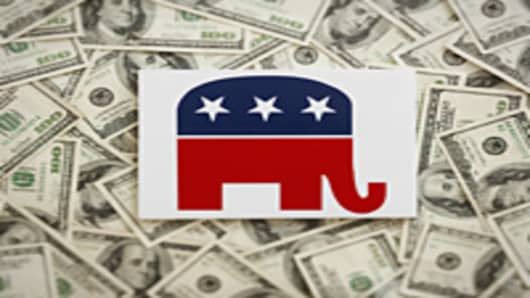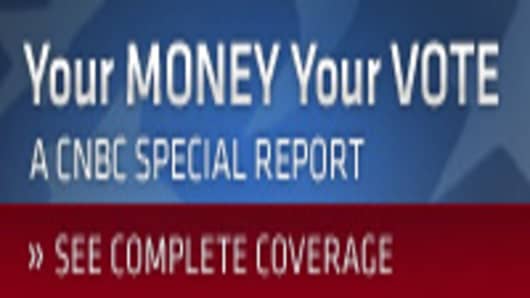Wall Street wants a do-over.
At least, that’s what it looks like from new campaign finance statistics from the Center for Responsive Politics, the organization that tracks how different industries contribute money to political candidates.
In a report released late Tuesday, CRP found that people in the securities and investment industry have dramatically reversed their campaign contribution trends, shifting from overwhelming support of Democrats in 2009, to an equally overwhelming support of Republicans in 2010.
CRP found that in March of 2009, people and political action committees associated with the securities and investment industry sent 70 percent of their federal-level contributions to Democratic candidates, party committees and leadership PACs. But by June of 2010, that dynamic had flipped. CRP reported their research shows that Republicans received 68 percent of all federal-level contributions from Wall Street.
That’s an enormous shift and it came as Democrats on Capitol Hill were pushing financial reform legislation that many on Wall Street resented as intrusive and costly.
But until we hear directly from some of the players who have shifted their giving, it will be difficult to tell exactly why the shift is happening. (Our inquiries to some of those contributors have not been answered yet.)
Often, savvy campaign givers aren’t expressing an ideological opinion, they’re trying to win favor with the party in power—or the party that’s soon to be in power. In 2009, it would have made sense on that level for Wall Street to give to Democrats who controlled all levers of power in Washington and were just coming off a historic election sweep.
But now in 2010 political prognosticators are forecasting serious losses for Democrats in this fall’s mid-term congressional elections. It’s possible that Democrats could lose control of one or more of the chambers of Congress.
It may be that Wall Street is simply hedging its bets—placing some chips on the GOP in case they come to power in the fall.
Or it may be that Wall Street sees itself as under attackin some way by Democrats in Washington, and has begun to regret the money it sent their way in 2009.
Either way the shift adds to the Democratic headwinds going into the fall.
And liberals have begun to react to the news, seeking to portray the GOP as the party most in bed with Wall Street, an industry that remains unpopular across the country.
In a press release Wednesday, the left-leaning group Americans United for Change put out a press release on the campaign shift, saying “Wall Street dumped money on GOP to kill reform.”
And the liberals hope to make a campaign issue of the money trail in the fall. “We hope that the outrage will still be there and it will be enough to overcome whatever money advantage the other side may have,” said Lauren Weiner, Deputy Communications Director of Americans United for Change.
- Slideshow: Richest Members of Congress
- 2010 Mid-Term Races to Watch
- Ten Ways Government Can Cut Wasteful Spending
- Larry Kudlow's 'Money & Politics' Blog




